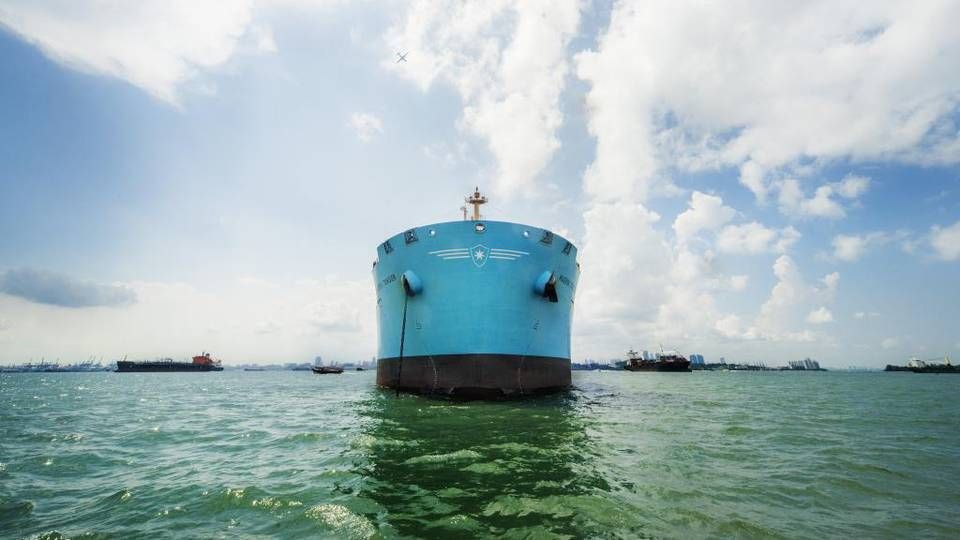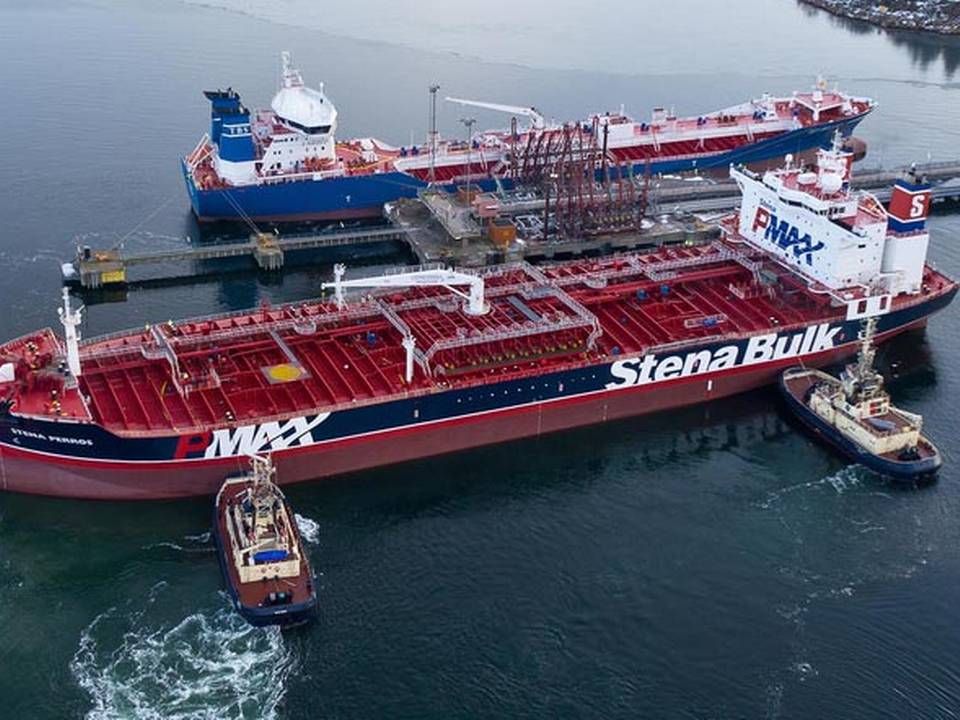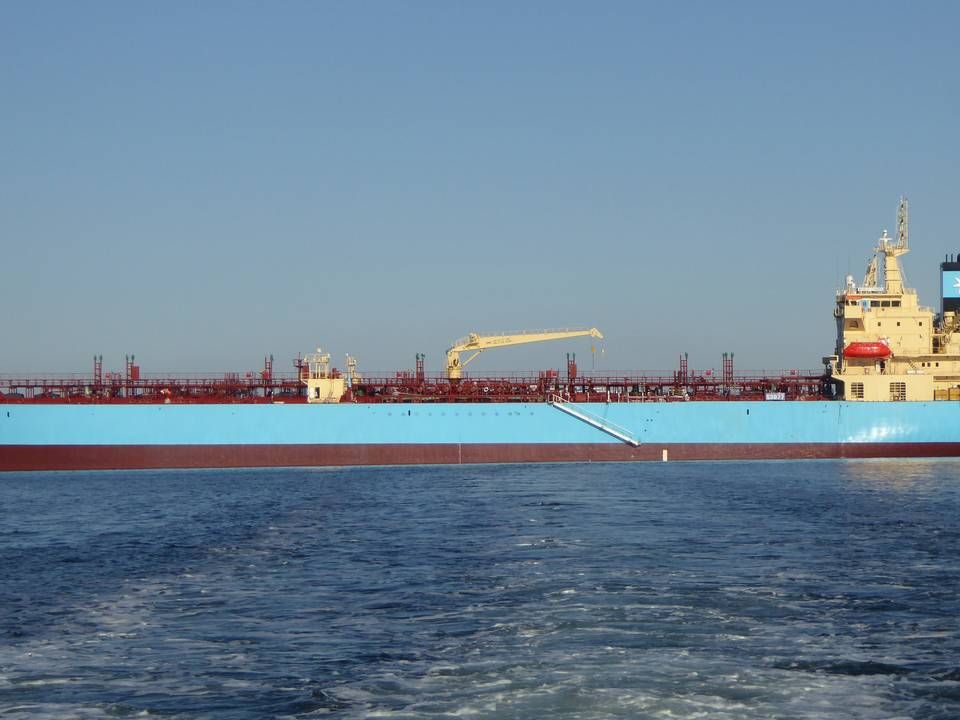Maersk Tankers to install scrubbers on four ships

Corrected at 10.30 am CET. Maersk Tankers will install scrubbers on four of its LR2 product tanker ships. The previous version of this article reported that the shipping company would not use scrubbers at all. This was not correct.
HAMBURG
Maersk Tankers will only install scrubbers on four of its product tanker ships out of its entire fleet to ensure compliance with the upcoming regulations concerning sulfur content in bunker oil.
While shipping companies such as Torm and Scorpio Tankers have invested in scrubber technology to clean exhaust gas from their ships, Maersk Tankers has opted for a different direction.
"It is our intention to stay fully compliant and that will by and large be by burning compliant fuels," said the company's Head of Management Services, Christian Ingerslev, on Wednesday at Marine Money's German Ship Finance Forum in Hamburg, where scrubbers again featured on the agenda.
With the decision, Maersk Tankers, which in 2017 was sold to the Mærsk family, sets itself apart from several other pace-setting shipping companies in the product tanker sector.
Scorpio Tankers in particular has bet big on scrubbers. The New York-listed shipping company expects to, in time, install scrubbers on 95 tankers to ensure that they can continue to burn traditional heavy fuel oil after the 0.5 percent sulfur cap comes into force on Jan. 1, 2020.
Depending on the price spread between heavy fuel oil and low-sulfur fuel oil, Scorpio Tankers expects to save at least USD 100 million annually once the 95 scrubbers have been installed on its ships. The investment will thus earn itself back fairly quickly.
While there are savings to be made in choosing scrubbers, it is also an open question whether the product tanker shipping companies will be able to push the cost of the more expensive low-sulfur fuel onto their customers, as for instance the container shipping lines are expected to do.
Instead, the tanker carriers could risk being left with the full bill for complying with the 2020 sulfur regulations, said Berenberg's Head of Shipping, Paul Dowell, at Wednesday's Marine Money conference.
Consumers pay
But Maersk Tankers does not share this view.
The shipping company does not expect that shipowners nor their charterers will end up paying the added low-sulfur fuel cost. Rather, the bill will go to the end users of the oil products shipped by the tanker companies.
"That is not necessarily very fair, because it is everyday people who end of paying a tax (to reduce pollution from shipping, -ed.) without really knowing it," said Christian Ingersleb, not to be confused with Maersk Tankers' CEO, who has the same name, Christian M. Ingerslev.
He also noted that it will likely not make a big difference for shippers in the tanker sector whether the individual shipping company opts for scrubbers or the more expensive low-sulfur fuel oil. Perhaps because the bill, according to Maersk Tankers, will go to end users, while shippers steer clear.
"I do not think the customers necessarily care. I think they want you to be compliant. Whether that is by applying scrubbers to the vessels or burning compliant fuels, as long as it does not disrupt the transportation of their cargoes, I do not think they necessarily have an opinion on it," said Ingerslev on stage in Hamburg on Wednesday.
The statement from Maersk Tankers comes at a time of intense debate about whether scrubbers in themselves constitute a source of pollution to the marine environment.
English Edit: Daniel Logan Berg-Munch
Stena's tanker units pursue separate paths on sulfur compliance
Related articles
Frontline reports strong start to 2019
For subscribers
Did the tanker recovery finally begin in late 2018?
For subscribers



















